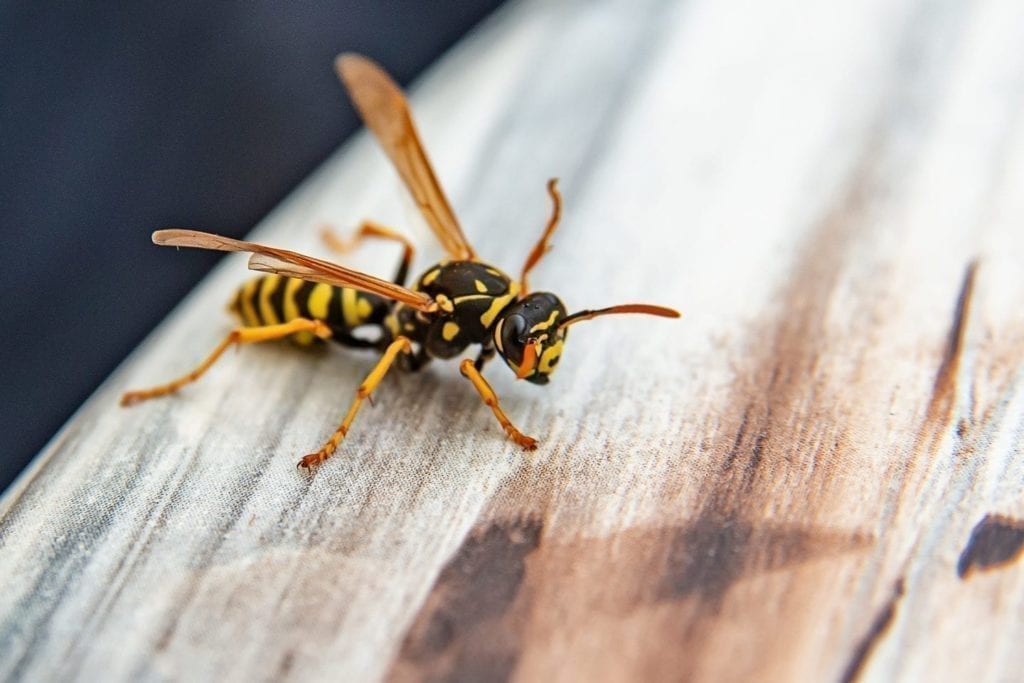Summer is finally here! As you spend time celebrating graduations and enjoying barbecues, be mindful of uninvited pests lurking in your yard. No, we’re not talking about that weird neighbor that shows up uninvited. We’re talking about stinging pests: bees, wasps, and hornets. If you tuned into the Summer Pest Gazette last month, then you already received some helpful information on pest proofing around the yard. This time around, we are going to be talking solely about stinging pests.
Good Bees Vs. Bad Bees
Not every insect with a stinger is looking to harm. Surprisingly, some of the scariest looking insects like the mud dauber are rather docile and only sting as a last resort. Bees are a very important part of our ecosystem and contribute to 1/3 of our food sources. In order to know who is friend and who is foe we’ve added this helpful video that will educate you on the distinct differences and habits between bees, wasps, and hornets. Being able to identify these pests and nests can help prevent you from being one of the 500,000 Americans going to the Emergency Room for a sting this year.
We Pollinators
Rose Pest Solutions understands the important role honeybees serve to our environment. We love what they do for us so much that we are always looking for new ways to team up and support them. What’s our favorite way to support the bees?…Pollinator Gardens! We’ve put pollinator gardens in schools, museums, and most recently right in the middle of our community. Check out our blog Planting Hope to learn more about the work we did with Girl Scout Troop #25774.
Protecting Your Party
In order to protect yourself and your guests from getting stung in that yard, here are some steps from Rose Pest Solutions and the National Pest Management Association (NPMA) to help you out:
- Seal cracks and crevices: Seal all visible cracks and crevices to keep stinging insects from moving indoors, and regularly inspect around house’s perimeter for nests.
- Keep food covered: During a picnic or cookout, cover all food when outside and be sure to keep tight-fitting lids on trash bins.
- Drink out of clear containers: Stinging insects can sneak into cans unnoticed, so it’s important to be able to see that a liquid is pest-free before drinking it.
- Avoid excessive use of fragrances: If you plan on spending long periods of time outdoors, skip the perfume or cologne, as yellowjackets and other stinging insects are attracted to sweet-smelling fragrances. When possible, choose unscented shampoos, soaps, lotions and sunscreen.
- Adjust wardrobe: Avoid wearing dark colors and floral prints as these can attract stinging insects. Wear closed-toe shoes, especially in grassy areas where hornets and other pests often nest.
- Remain calm, cool and collected: Do not swat at stinging insects—these movements may actually provoke an attack. Instead, remain calm and slowly walk away from the area. The insect will likely fly away without causing any harm.
Need Help with a Hive?
Don’t get stung, we’re here to help. As stated, some stinging pests like hornets and yellow jackets can be very aggressive if disturbed. If an infestation is suspected, call professionals immediately. Our Healthy Home Maintenance Program (HHMP) involves four scheduled visits, once every three months, and covers more than 12 common invaders in addition to stinging pests. We stand by our services and their 24/7/365 protection 100%, so we’ll take care of issues that pop up in between scheduled visits at absolutely no cost to you. That’s right, we’ll come back out for free.
Give us a call today at 800-GOT-PESTS? to set something up so you can get back to enjoying the weather without summer pests holding you back.


